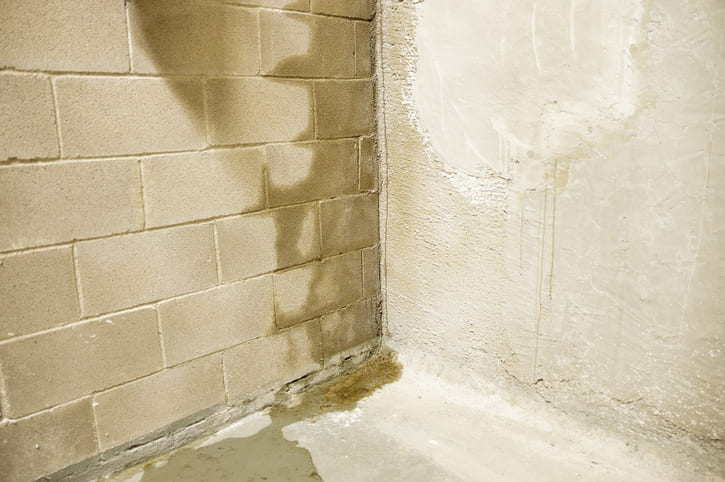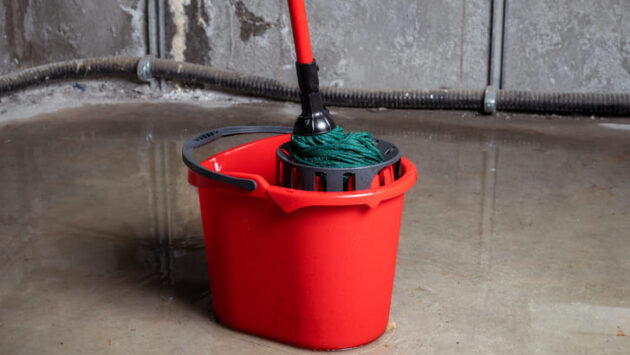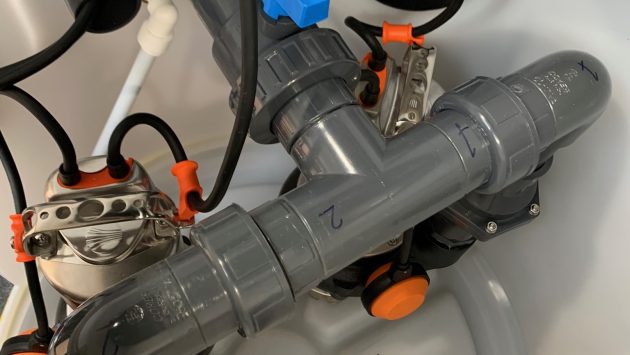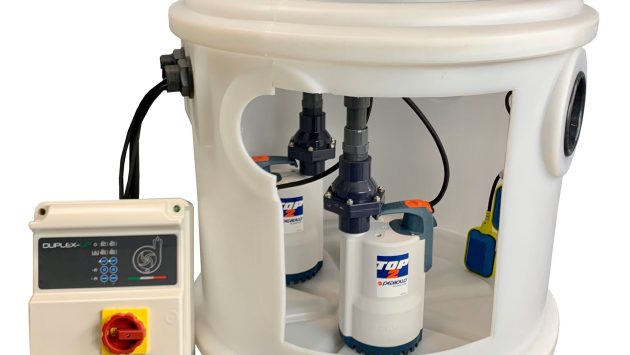Top Causes For Water In Basement
If you’ve recently noticed that you have a musty smell and a wet basement, this could be a sign that water is entering and collecting in your basement. Water in your basement can lead to damage and mould buildup which can be hazardous.
One of the most frustrating things can be trying to figure out where the water is coming from and how it is in your basement. That’s why we’ve created this guide to help you narrow it down and hopefully prevent further water damage.
Water in basement causes
Check for the following to narrow down why there might be water leaking into your basement.
Interior leaks
The first thing you should check for is interior water leaks. Things like leaking pipes from your bath or sink can lead to water getting into your basement. If you do find that a pipe is damaged and leaking somewhere in your house, this can be a relatively easy fix for you or a plumber, and your basement shouldn’t suffer from water damage once the job is completed.
Condensation
Condensation in your basement is one of the easier problems to solve. Condensation will happen when warm, moist air hits the cool, cold surfaces and walls of your basement. This can happen if you have a bathroom with a bath or shower in your basement or if the basement is full and has little ventilation. To eliminate this, it’s best to remove any junk from the room and place air-conditioning vents around the space. If you do have a bathroom in the basement, make sure to have and use an extractor fan too.
Blocked or missing gutters and downspouts
If your exterior drainage, such as drainpipes and guttering, is blocked by leaves and debris, water can overflow. Eventually, this water will make its way into your basement and could lead to mould and basement flooding. On the other hand, if you have missing drainpipes or downspouts that don’t funnel the water far enough away from the house, this will cause a water build-up and will again enter your basement.
Solve both these issues by cleaning the guttering regularly, fixing any broken drainpipes, and adding extenders on the downspouts so the water is dispersed at least four feet away from your foundation.
Ineffective landscape slopes
The slopes near your foundation walls need to be facing away so that water drains away from the house and not towards it. If the soil has built up and caused a dip near the foundation, this is where water will collect and eventually find its way into your basement. Make sure the ground around your foundation is sloping away from your house by creating a slope in the opposite direction.
Cracked foundations and hydrostatic pressure
Cracked foundations and hydrostatic pressure can go hand in hand. Hydrostatic pressure occurs when rising groundwater pushes against a house’s foundations and pushes water through any cracks and openings in the concrete. This can also cause more cracks to develop on the foundation, as well as the basement walls and floor, which will make the situation worse.
How you can fix this problem will depend on the cracks and how they are created. If the cracks were caused by structural problems, correct footing and connections should be used to seal any gaps. You may need a professional in foundation repair to come and assess the situation.
Window wells
Sometimes, the window wells get clogged up like drainpipes do. This can cause it to leak, and the excess water might just make its way into your basement. The best way to tackle this issue is to keep on top of regular cleaning of the window wells and replace any damaged ones. If you do not have window wells, it’s a good idea to invest in some to stop water from reaching your basement.
Poor subsurface drainage system
Most homes lack decent subsurface drainage. Older homes typically weren’t built with any under-the-floor drainage systems, while newer builds often experience several problems even if a subsurface drainage is installed. This is due to it being poorly fitted or designed. Having an expertly fitted sump pump in your basement or cellar can prevent standing water in the room. However, this is a complex task so would require a professional.
How Sumps And Pumps can help
At Sump And Pumps, we specialise in all types of pumps for wastewater, groundwater and cellar applications. So, if you are tired of a flooded basement, it might be time to try a basement waterproofing system like a sump pump! It will be fitted in the lowest part of your basement – where the water tends to collect – and once this water reaches a certain level it will be drained out through a dedicated drainage system which will keep your basement dry. Take a look at our range of products or contact us today with any questions you may have!



